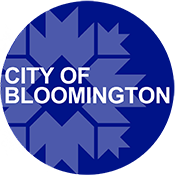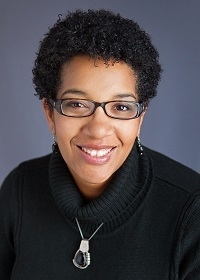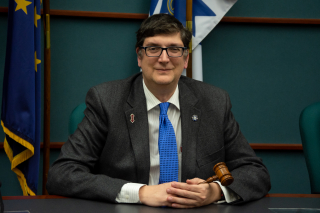
BLOOMINGTON – The Center for Equity and Inclusion has been selected to lead anti-racism training for City of Bloomington department heads and elected officials. Mayor John Hamilton and City Clerk Nicole Bolden announced their commitment to providing and participating in anti-racism training in July 2020, and invited the City’s other elected officials and appointed department heads to join in the training.

“Bloomington like every American city carries legacies of racial injustice from our past, still with us today,” said Mayor Hamilton. “Investing in anti-racism education is one commitment the City is making to examine and transform mindsets, policies and practices at the government level to improve outcomes for all our residents, to be a Bloomington more inclusive and more just.”

“I am grateful to have been a part of the thorough vetting process that the city engaged in to find anti-racism training for city elected officials and department heads,” said Clerk Nicole Bolden. “It is my hope that all of our elected officials will commit to joining with our new partners, the Center for Equity and Inclusion (CEI), in order to learn how to incorporate anti-racism in our processes, practices, and policies.”
Participating in anti-racist training continues the City’s ongoing efforts to address structural racism and promote equity within City programs and policies. Anti-racism training is part of a comprehensive strategic racial justice vision for the City administration led by the Mayor, City Clerk and City Council, and is supported in the City’s Plan to Advance Racial Equity.
CEI will provide training over the next 12 months that demonstrates how racism functions in governmental programs, policies and procedures and supplies staff and elected officials with tools and strategies to address structural racism and advance racial equity. The goal of the training is to begin to build capacity among City leaders to champion and direct equity, diversity, and inclusion efforts going forward.
The Portland, Ore.-based firm responded to the second of two RFQs for anti-racism training proposals issued by the City of Bloomington in 2020. Proposals were reviewed and applicants interviewed by a team including City Clerk Nicole Bolden, Community and Family Resources Director Beverly Calender-Anderson, Human Resources Director Caroline Shaw, and then-City Council President Steve Volan.

“It was a thorough, intense process that lasted well into 2021,” said Volan. “I believe strongly that we’ve chosen the proposal that will serve us most comprehensively over the next 12 months, and, in CEI, the best program provider for the city’s leadership.”
CEI signed an agreement with the City on April 30, 2021, to guide City leaders through a long-term, transformative process that centers on racial equity. The cost of this training is $158,460. This initiative continues an increased commitment to the training of City staff, reflected in the tripling of such investments since 2016, to 1.5 percent of payroll. It also expands on implicit bias training that has been provided across City departments since August 2019.

“There is no quick-fix to eliminating the negative social impacts of systemic structural racism and implicit bias in our society,” said City Council President Jim Sims. “A key element in addressing racial inequities is to invest and participate in anti-racist training in order to educate our City administrators, staff, and elected officials to better understand how and why racism affects local government programs, policies and strategies.”
Center for Equity and Inclusion (CEI) is an organizational change consultancy focused on advancing equity, diversity, and inclusion. BIPOC-owned and led, CEI provides facilitated learning and tool-building to identify, address and close racial and economic disparities. Founded in 2015, CEI has partnered with over 100 organizations (non-profits, foundations, civic, education, and private sector) to re-envision and implement long-term organizational change.



